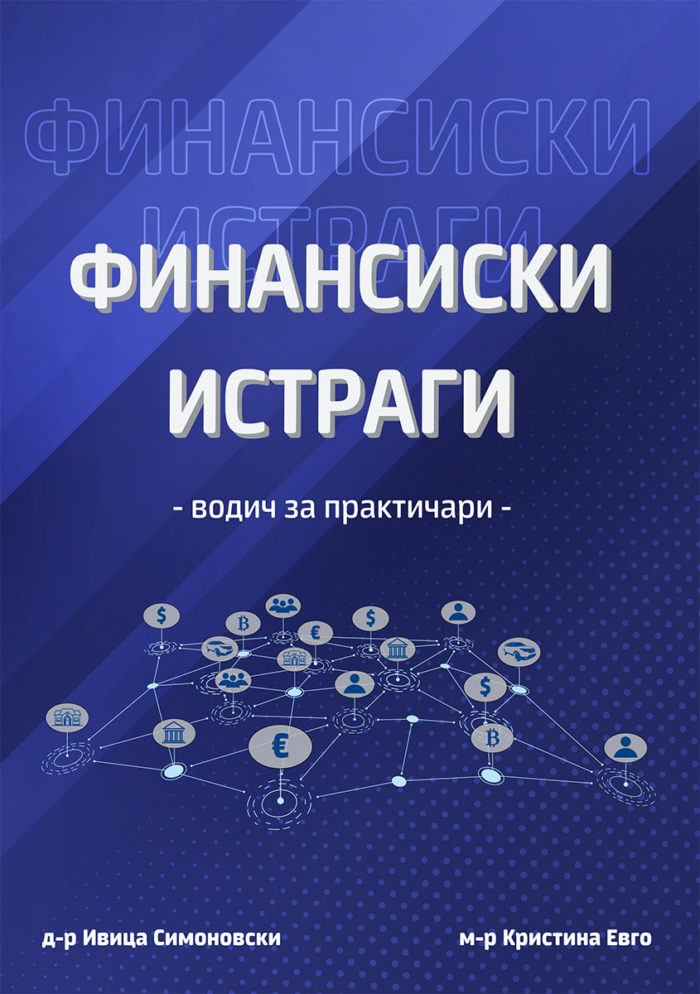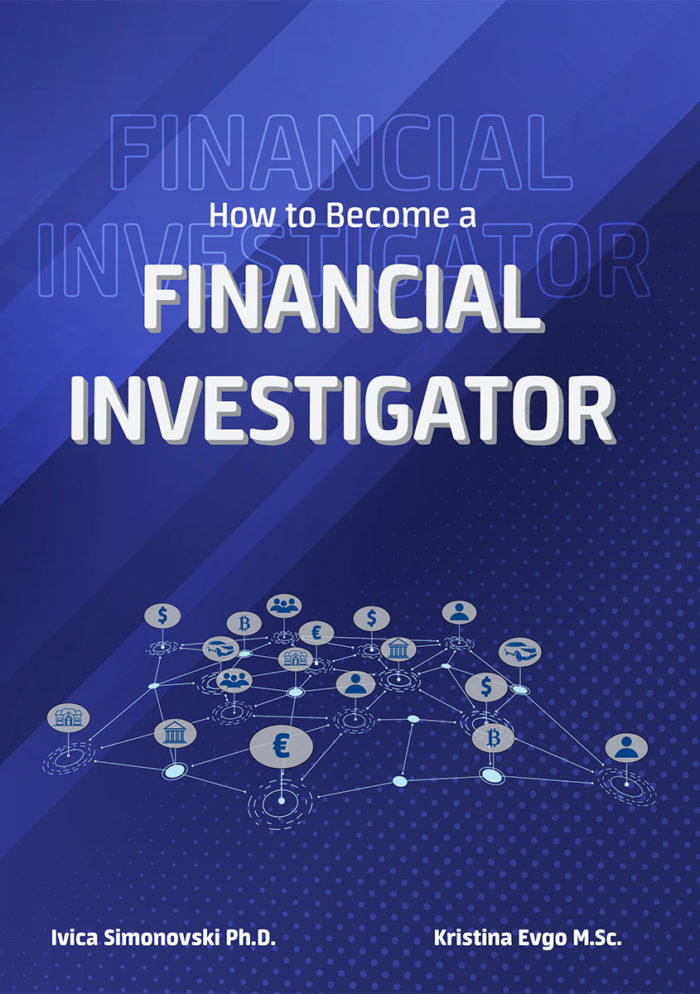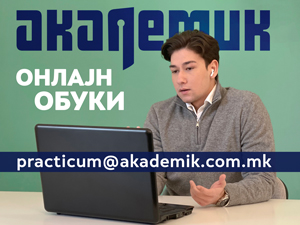NEW IN THE AKADEMIK BOOK STORE: “Финансиски истраги – Водич за практичари” and “How to Become a Financial Investigator” by Ivica Simonovski Ph.D. and Kristina Evgo M.Sc.
In the Akademik Book Store began the sale of the book “Финансиски истраги – Водич за практичари” and its translation in English “How to Become a Financial Investigator” (available as a separate edition) by the authors Ivica Simonovski Ph.D. and Kristina Evgo M.Sc.
“How to Become a Financial Investigator” by the authors Ivica Simonovski Ph.D. and Kristina Evgo M.Sc. focuses on particularly current issues that in recent years have come into focus of experts and scholars alike. The financial investigation is a crucial tool for detecting money laundering, terrorist financing and other serious crimes. It enables the investigators to obtain new information regarding criminal acts, to successfully map out entire criminal networks, and to disclose essential evidence for prosecution of the perpetrators, seizure of the proceeds of crime, and confiscation of their property.
The book is prepared in a form of a textbook that is highly beneficial for both practitioners and scholars. With this book, they can get acquainted with the latest theoretical studies on financial investigations, but also how the financial investigations are practically undertaken using the appropriate tools, methods and techniques, as well as software solutions for presenting the results of financial analysis. The authors emphasize how beneficial such a work is for the investigators – practitioners, that is, the opportunity that it gives them to gain knowledge and develop skills in order to use methods and tools with respect to conducting financial investigations.
This book can be used not only in the Republic of North Macedonia; it is conceptualized to be used in any country and is intended for all practitioners dealing with the issue of financial investigations, including bank clerks, exchange offices, fast money transfer providers, lawyers, accountants, notaries, investigative journalists and other professionals and agencies dealing with the issue of financial investigations, which should promptly detect suspicious financial transactions and activities.
The first four chapters of the book explain, define and analyze the terms “illicit financial flows“, “money laundering“, “terrorist financing“, and “property and proceeds (property gain) of crimes“. The fifth chapter “What is a Financial Investigation” studies the need and goals of the financial investigation which should be conducted in parallel (together) with the criminal investigation. In this chapter, the authors give a special overview of the goals of the financial investigation that should enable: detection of the crime from which illegal proceeds are generated, as well as the perpetrators of the crime; determination of the illegal proceeds acquired from the commission of a crime; determination of the proceeds that need to be seized; provisional measures for securing the illegally acquired proceeds of crime. The authors also emphasize the need for proper management of seized or confiscated property. In the sixth chapter entitled “Prerequisites for Conducting Financial Investigations” the authors give a special overview of the legal basis for successful planning of financial investigations by the competent institutions, as a parallel process with the criminal investigation.
The seventh chapter – “Investigative Methods and Techniques for Data Collection, Structuring and Analysis” explains the methods and techniques available to the financial investigator that he or she should use to obtain evidence. According to the authors, investigative methods and techniques are generated in three basic categories, that is: standard investigative techniques; special investigative measures, and integrated financial investigation – financial analysis.
The eighth chapter “Building Networks for Cooperation and Coordination” emphasizes the essential need for cooperation between investigative bodies and their coordination in the conduct of financial investigations. Of particular importance is the cooperation with the Financial Intelligence Unit, through which the quantitative and qualitative financial data necessary to identify, locate and monitor illegally acquired property can be provided. The authors in this chapter emphasize the need for inter-institutional and international cooperation and the exchange of data and information between countries, using formal and informal channels of communication.
The last, ninth chapter, entitled “Provisional Measures and Confiscation“, explains the significance of provisional measures consisting of the temporary seizing (freezing) of property under investigation and suspected of criminal origin. The robust system of provisional measures and confiscation is an important part of an effective system for combating organized crime and money laundering. At the end of this chapter, the authors explain the types of confiscation, that is, property-based confiscation, as well as value-based confiscation.
The book “Финансиски истраги – Водич за практичари” and its English translation “How to Become a Financial Investigator” can be purchased from our e-shop (https://prodavnica.akademik.mk) or ordered by sending an e-mail to akademik@akademik.com.mk at a price of MKD 1,943.00 (MKD 1,850.00 excluding VAT).
Translated by: Emilija Kuzmanovska










